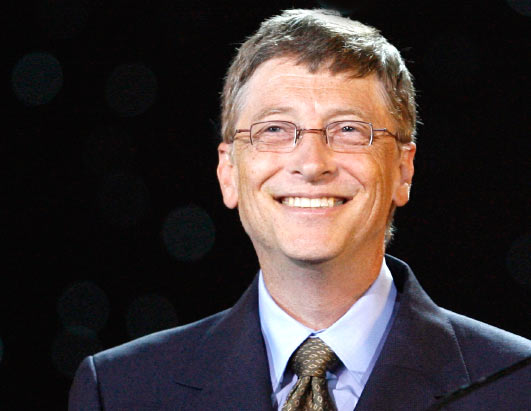Bill Gates Cure – “Creative Capitalism”

(Photo by: J.P. Moczulski / REUTERS/Landov)
The success story of Bill Gates is nothing but spectacular. But by the very same markets that made him rich, he now wants to overhaul capitalism. The founder of Microsoft is calling for a new economics that could help change the world.
Speaking recently at the World Economic Forum in Davos, Switzerland, Gates praised technology and science for making the world better, but he warned that “breakthroughs change lives only where people can afford to buy them.”
Billions of people need the great inventions of the computer age, Gates says, as well as basic services. But they can’t express this need “in ways that matter to markets.” Money talks, and they don’t have any.
Gates’s cure is a “creative capitalism” that is driven by self interest and concern for others. It means asking how capitalism could work in the poorest markets.
Companies already know how to sell luxury items to rich shoppers. To become creative capitalists, they would have to figure out how to reap a profit in extremely poor markets. Sometimes the profit would be money, and sometimes it would be in the form of recognition that would attract customers and talented employees.
What could be sold? It won’t be $300 iPods or $45,000 BMWs. Rather, companies would have to listen closely to local needs and respond. That’s what a company in India called the Serum Institute did when it came up with a way to produce low-cost vaccines for babies in developing countries. Communications companies are wiring rural communities around the globe so residents can use wireless phones and computers. Designers are creating portable light sources, and solar-power is purifying water and illuminating communities that lack electricity. And Microsoft is working on a computer driven by images so it can be used by people who can’t read.
To make creative capitalism a two-way street, Gates’s foundation is funding efforts to “help businesses in the poor world reach markets in the rich world.” One example is a program to help African farmers gain access to the premium coffee market, so they can double their incomes.
Gates adds: “I hope corporations will consider dedicating a percentage of your top innovators’ time to issues that could help people left out of the global economy,” arguing that this could be more useful than donating cash.
This promising perspective recasts global poverty as a new frontier where cutting-edge thinkers can advance global innovations.
Now Gates has to keep preaching, until more people can see what he sees. He’ll have to keep calling for partnerships among business, government, and nonprofit groups. And he’ll need famous friends such as Bono, the rock star advocate, to add the gleam of celebrity to the cause.
Opening up new markets alone won’t end global poverty. But creative capitalism could compel more people to try. Read article





